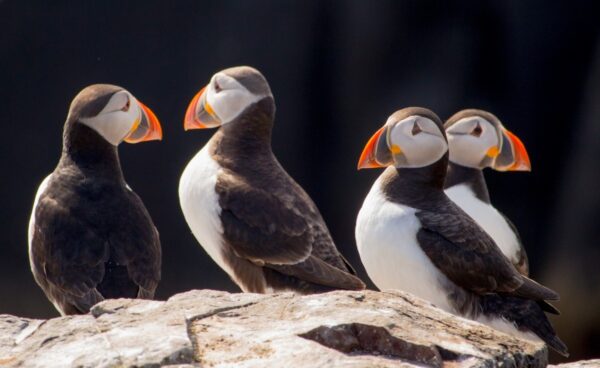The 2023 State of Nature report shows that the abundance of species studied in the UK has declined by 19 per cent on average since records began in 1970. But while the most important natural habitats are in poor condition, work to protect landscapes has clear benefits for nature, people and climate.
The State of Nature report is the most comprehensive survey covering the UK, its Crown Dependencies and Overseas Territories. It’s compiled by a number of conservation organisations, including the National Trust. The latest report has found that nearly one in six of the 10,000-plus species surveyed risk being lost from Great Britain.
The most at-risk groups included birds, amphibians and reptiles, fungi and lichen and land mammals. Pollinators such as bees and butterflies are among the worst-hit groups, falling by 18 per cent on average.
Habitats for wildlife were also found to be faring badly, with only one in seven of those assessed for the report in a good condition. This included only a quarter of peatlands and seven per cent of woodlands found to be in a good condition. None of the sea floor around the UK was in a good state because of damage caused by discarded fishing gear.
Marine and coasts
Grey Seal numbers have increased as they recover from historical hunting pressure. Harbour Seals are in decline in parts of north-east Scotland and south-east England but are stable or increasing in other regions.
The numbers of 13 species of seabird have fallen by an average of 24% since 1986. The situation is worse in Scotland, where the abundance of 11 seabird species has fallen by an average of 49% since 1986. These results pre-date the potentially major impact of the ongoing outbreak of Highly Pathogenic Avian Influenza.
Varied picture for other marine life.
The report states that less is known about changes in species’ abundance and distribution in UK seas. Well-monitored species of demersal fish (those living on or near the seafloor, 105 species) showed an average increase in abundance during the 1990s and early 2000s but have since declined. Whales and dolphins (three species) have shown little change in average abundance since the early 1990s.
Further information
The State of Nature 2023 report is a collaboration between conservation and research organisations, including the National Trust, NatureScot, JNCC and Natural England, among others. A blog regarding the report from Dr. Pete Brotherton, Director of Science at Natural England can be read here and a news release from NatureScot here, and NRW here.
Further information and the full State of Nature report can be found here.
